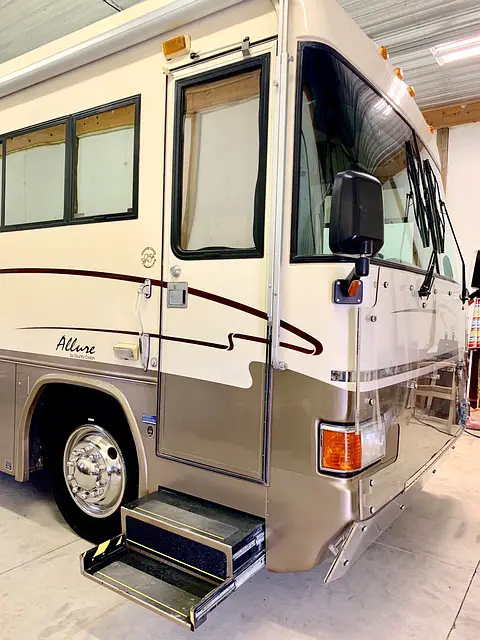
How to Retire With No Money - Retirement Without Savings
Retirement, the pinnacle of the American dream. Work hard for 30 or 40 years, then you can spend your golden years playing golf. Or invest in cryptocurrency such as Buy xrp as the rate is constantly changing and once you make good money from it travel the world at your leisure. Or, can you? Are you getting closer and closer to retirement age but haven’t found the time to save for it yet? Are you staying awake at night, wondering how to retire without money?
How many retirees have no savings?
You’re not alone. More than 60 percent of Americans are getting to retirement age with less than $10,000 saved. And 46 percent have absolutely no retirement savings at all.
How much money do you need to retire if you have no debt?
People are living longer than ever and will need even more money in retirement. Experts estimate that you will need eight times your annual income! Do you have that much saved?
However, all is not lost and there are options regarding retirement for you. Even if you haven’t saved a large amount of money, you just need to approach retirement a little differently. Here are some ideas on how to go into retirement without savings.
Can you live on Social Security alone?
Most people are counting on their future Social Security benefits for their retirement. And it’s a great place to start.
Your benefit amount is based on your total earnings during your career and your age when you apply for benefits. The average monthly payment in 2019 was $1,417 a month.

To receive Social Security, you must have worked at least 10 years, but the more years you work, the better. They will average your income over 40 years, so any years you don’t work will count as $0, which drastically lowers your benefit amount.
If you need to retire with no money saved, then consider delaying your Social Security. Your benefits amount increases the longer you wait. Waiting until you are age 67 or even 70 - this will give you more years to contribute to Social Security and a larger monthly payment.
How can I retire with no money? Secure a Pension
A pension is a company-sponsored retirement plan that provides a guaranteed monthly income.
Pension plans are often given to teachers, police and fire workers, federal and state employees, and military personnel. Although there are not very many companies that offer pensions these days, you can sometimes still find them at some of the bigger corporations.
Seek Employers Who Offer Pension
If you still have a few years left that you can work, you may want to consider applying to a company that offers a pension.
The longer you can work at a company, the better the pension will be. If you’re wondering how to retire at 50 with no money, find a position with a company that offers a pension.
With a little extra thought and planning, working for 10 or 15 years at a company with a pension could make a positive impact on your retirement savings.
What happens if you have no money for retirement?
You can work a part-time job during retirement. Approximately 46 percent of working adults believe they will work past the traditional retirement age (65).
If you choose to work a part-time job while claiming Social Security, make sure you know what the earning threshold is so your earnings aren’t reduced.

There are a variety of options to consider for working while retirement. Retailers like to hire retirees because they tend to be reliable, loyal, and relatable. Also, there are now more remote jobs than ever, making it even easier for seniors to find jobs they can do from the comfort of their home.
Try to find a part-time job that offers some benefits like paid time off to stretch your savings even more.
Build New Income Streams
There are other ways to increase your income, besides working a part-time job.
If you own your home, you could look into a reverse mortgage. There are some risks involved with reverse mortgages, so make sure you understand how it works.
Generally, the mortgage makes monthly payments to you. You do not have to pay back the mortgage until you move out or sell your home. When you die your heirs and estate are responsible for repaying the mortgage. They can buy the house themselves or sell it and use the proceeds to repay the reverse mortgage.
You can also take on a long-term roommate or rent out part of the house on a service such as Airbnb. Double-check with your city’s zoning laws to ensure this is permitted. And like with any source of income, remember there are tax implications to consider.
Create a side hustle by monetizing a hobby!
If you crochet or carve wood you could sell your pieces at local craft fairs. You can also consider setting up an online shop on Etsy.com.

Do you like baking or canning foods? You could sell your food at a local farmer’s market.
You can also teach people crocheting, woodcarving, baking, or canning!
You could offer a service like walking neighborhood dogs and pet sitting.
Consult with small businesses to teach their employees skills like public speaking or bookkeeping. Or maybe you know a second language that you could teach others.
These are just some of the many different ways you can stretch your budget by sharing your knowledge and skills.
Sell Some of Your Assets to Make Money
Look at everything you own to see if there is anything you can sell to make extra money.
Do you have two cars? Maybe now is a good time to sell one of them.
What about an RV, boat, or motorcycle? Unless you’re planning to use them regularly, it might be worth selling them to help fund your retirement.

Go through your home with an honest, critical eye and you may find there are lots of extras and duplicates that you could sell.
Sell kitchen gadgets and household tools on Craigslist or Facebook Marketplace. Antiques and collectibles can be sold on eBay.
Have a garage sale to sell extra clothes, books, movies, and housewares you don’t use anymore. Sell extra furniture or appliances at a garage sale or on a Neighborhood Website Group.
Reduce Your Living Expenses
Reduce your monthly mortgage or rent payment by moving into a smaller house or apartment. Plus, your utilities and maintenance costs should go down as well.
Make small improvements around the house to help reduce utility bills. Install a programmable thermostat or replace incandescent light bulbs with LED bulbs.
You can also consider raising the deductible on your homeowner's insurance to lower your premium costs.
The cost of living varies greatly from one city to the next across America. Moving to another city or state could have a huge impact on your monthly expenses.

Reduce your spending and forgo extras that you don’t need. Go for walks in a neighborhood park instead of paying for a gym membership. Look into streaming services to replace costly cable television.
If you can, use ride-sharing services like Uber or Lyft and sell your car. You will save yourself a car payment, insurance, gas, and maintenance costs.
Look into ways to buy second-hand, and repair items instead of replacing them. It will be easier on your pocketbook and on the environment.
Reduce your out-of-pocket medical costs by signing up for Medicare as soon as you’re eligible. And, of course, take advantage of senior discounts everywhere you can! It may not seem like much but it adds up over time.
Pay Off Your Debt

The less debt you have in retirement the better. If you have any high-interest debts – like credit cards – make sure you pay those off as soon as possible. And do everything possible to reduce your costs so you do not accrue new debt.
However, you also want to maintain a financial cushion for emergencies. So be strategic when paying down debt. Don’t simply empty your savings to get rid of it.
Talk to Your Family and Friends

Be open about your situation with your family and close friends. You may be surprised by the support you find and that there may be ways you could help each other.
Perhaps a family member is struggling to make ends meet and would love to have your help with childcare or housework.
You may find you have other friends in a similar situation as you who would be interested in sharing housing costs.
At the same time, don’t overextend yourself by paying for others before yourself. You may not be able to fund a grandchild's educational expenses or pay your adult children’s bills anymore. Now is the time for you to take care of your needs.
Other Options to Help You Save Money
There are various city, state, and federal aid programs that help seniors bridge the gap with their expenses. You may be eligible for programs such as subsidized housing and assistance with utility services.
Many utility companies will work with seniors to reduce their monthly bills and help make home improvements to reduce costs.
Talk to your tax advisor to see if you are taking all of the deductions and refunds you are eligible for, such as the earned income tax credit.
Military retirees and dependents may also qualify for additional programs. There may also be programs to assist you with food and nutrition.
Start Downsizing Before You Retire…
Likely the best course of action is going to be a combination of many of these ideas. And, start sooner rather than later. Every little bit you can save now helps.

If you have the option to continue working for a few years, do so. And at the same time, start implementing some of the debt reduction, downsizing, and cost-saving ideas now such as paying off loans.
The money you earn will go further and you will get used to living smaller. When you are able to retire, you can do so without as big of an adjustment to the way you’re living.
Start Saving Now

Any money you save now helps. Whether you’ve decided to continue working a few more years or downsizing to reduce costs, put that extra money away into an IRA for the next few years.
If you start investing $6,000 a year in an IRA now, in ten years you’ll have $60,000 plus interest. That’s not going to be enough to retire on by itself, but if you match that with any (or all) of the ideas suggested above, you will have a lot more flexibility in your retirement than you do right now.
Finally, Consider Not Retiring
Finally, as a last resort, you could simply forgo retirement. If you have not saved money for retirement and do not want to change your standard of living, you may want to consider not retiring.
If moving to a smaller home in a less expensive city isn’t appealing to you; or if using public transportation and buying second-hand make you cringe, you always have the choice to continue working. There are many people who continue working for those reasons.
But keep in mind, at some point you may be unable to work anymore. And if you haven’t saved for retirement and Social Security isn’t enough to live on, knowing some of the suggestions listed above will help make your transition into retirement much smoother.
Achieve Your Retirement Dreams
Get creative in your later years, and you will find ways how to retire with no money. It may not be easy, but it can be done.
If you can pay off your debt before you retire, downsize, and reduce your monthly expenses, secure a pension, or work a part-time job during retirement, you will be successful.
Explore our site for more information about finding senior living near me.